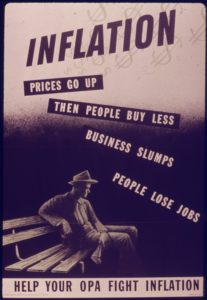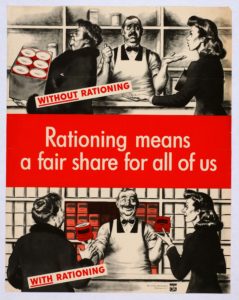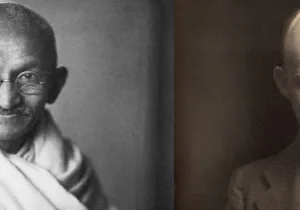“The Nation in Peril,” by Reinhold Niebuhr
July 22, 1946
There is something fantastic about the economic peril in which the nation stands. We are in danger of inflation because we do not have sufficient goods to meet the demands of the people despite the fact that we are producing more goods than any other nation on earth. We are in danger of becoming poor because we are too rich. If prices rise to proportions which will place, not only luxuries, but ordinary necessities beyond the reach of the ordinary man, the upward spiral will soon give way to a downward one; and depression will follow the boom. It may be well to remind ourselves that foreign observers have long predicted that we would not manage our economy well enough to escape this disaster. The British for instance were reluctant to hitch their economy to ours in the Bretton Woods agreements because they feared that we were headed for a “boom and bust” era.

It is one of the tragic aspects of human existence that in such a situation the church cannot speak authoritatively. It cannot at least, speak with any degree of unanimity. The same Federal Council which can admonish the conscience of Christians and of the nation on the moral issues involved in international affairs cannot speak on the economic crisis confronting us because the people in the church are divided, their opinions being colored by the various interests and dogmas which effect the total community. The multitudes in the cities, fearing soaring rents and rising food prices, are for continued OPA control. It may well be that the president’s veto of an inadequate OPA extension will prompt such a strong public clamor from this portion of our population that a reluctant congress will yet pass a stronger law. On the other hand farmers, generally, are opposed to the control and subsidy measures required to hold food prices steady. This conflict between the producers and consumers of food is a very ancient one. It is not a conflict between poor man and rich man; but it is a conflict of interest none the less. There are furthermore urban classes of manufacturers, rather than food producers, who also believe that, if only restrictions were removed, they could produce enough to guarantee a reduction of prices by mere abundance.
The coming months will determine whether this theory has any validity. Our guess is that it hasn’t. We ought, as Christians, to admit contritely that no degree of Christian goodwill can overcome the conflict of interest in the general community completely. Though Christians, we are producers or workers, members of this or that class, whose opinions are partly determined by our interests.

Yet it would not be too much to ask that Christians, who ought to have some repentant sense of the mixed character of all human motives and of the interested character of human judgments, should have some decent restraint in proposing their particular panacea for the cure of the nation’s ills. They ought above all to ask themselves: Do I really propose this or that action because I think it is good for the community, or do I propose it because I think it would be profitable to me? A New York Times correspondent reported a conversation with a farmer on July 2d who cheerfully anticipated a possible $2.50 per bushel price for wheat, and felt that this would compensate the farmers for the day when they had to sell wheat at 25 cents per bushel. One wonders whether such a person will stop to think of the consequences of such a wheat price upon bread prices in the cities.
Even the best of us do not have completely disinterested ideas of justice. That is why the church can never speak with complete unanimity on even the most important domestic and economic issues. But our Christian faith would be a salt, completely without savor, if it did not place some check upon our inclination to seek our own interests first, and to sanctify the procedure by pretending that we are really concerned with the general welfare.
Under-Secretary of State Dean Acheson has illumined another facet of our inflation problem which Christians ought particularly to heed. He has warned that the removal of all restrictions will make it practically impossible for America to meet her obligations to the starving people of Europe. Our economic crisis involves not only the health of our own nation but the health of the world community. For American wealth is an indispensable asset in nursing the world back to health. If we squander our health and wealth, not only we, but the world, will be confronted with new disaster.







 Live in the DC area? Sign-up for Providence's in-person events list!
Live in the DC area? Sign-up for Providence's in-person events list!